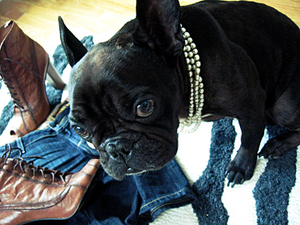In a continuation of our discussion of puppy "health guarantees" the question is: is it feasible to expect breeders to guarantee against all congenital and genetic defects and what should breeders guarantee or promise? It is a pervasive "wisdom" that "good" breeders will only produce healthy puppies with no genetic problems or congenital defects and a "responsible breeder" certainly would never sell a puppy with a congenital or genetic defect. This has long been a stated or implied expectation that breeders have placed on themselves and others and a notion that has passed on as conventional wisdom regarding the purchase of a puppy. As a result, when a problem occurs, it is to be approached with chagrin, shame or denial on the part of the breeder and blame placed on the breeder by others. But is this expectation reasonable? Is expecting breeders to recognize the presence of all congenital defects even feasible?
Articles like Empowering international canine inherited disorder management by BJ Wilson and CM Wade published in Mammalian Genome in Feb of 2012, and the increasing volume of canine health and genetic research illustrates the reality of genetic risk inherent in dog breeding ...








